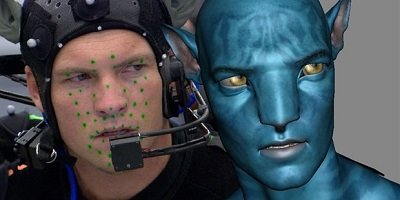
捕捉面部表情的软件是非常有趣的虚拟角色面部捕捉工具,通过摄像头面部传感来实现虚拟交互功能,虚拟角色会配合用户的脸部动作,有着非常丰富的虚拟人物可选,相当有趣,推荐主播人群使用,还支持用户切换背景环境以及改变自己的声音。除了表情动作之外,加入了声音变换的功能,结合表情、脸型和视线,制作出动画虚拟人物。同时它也支持影像录制,从而实现真正的拍动画片的目的。即使是最轻微的肌肉抽动,软件都可以捕捉到,基本上没有延迟。
878.90M / 2023-03-20 / v0.69b 特别版
SteamFaceRig是一款功能相当之强大的人物脸部捕捉软件,简单说一下它的工作原理,提供摄像头为跟踪设备捕捉用户脸部动作,然后转化为数据套用在其他动画模型上。用户只需要坐在摄像头面前,FaceRig就能将你化身成一位
265.00M / 2015-12-11 / v1.3.0.1 官方正式版
Faceshiftstudio是一款面部动作捕捉工具,并将人物动作表情移植到3D动画建模上,对于动画制作以及游戏创作是一款非常有用的创作工具,绿色资源网小编为大家提供了官方最新版下载,欢迎下载体验。软件简介Faceshiftst
312.23M / 2022-10-11 / v1.32.0.1772 最新版
acfun面捕助手给需要的用户朋友带来一款非常方便且好玩的直播面捕软件,让你的脸型完美的映画在动漫上并且可以根据你的动作而动作,便捷的操作方式更有各种不同的动漫形象选择,无需复杂的操作只需一键导入就可以轻松
551.03M / 2022-04-26 / v1.6.9 官方版
vup直播软件可以让你用虚拟的角色进行直播,现如今虚拟主播也是有很多的,如果你也想做虚拟主播也可以来此学习如何使用,同时内置官方提供的模型,你可以用来调试。这里的面捕也是非常精准的,基本做到了实时的反馈,
28.76M / 2022-12-23 / v84 免费直装版
facerig手机版带数据包直装版app(二次元面部捕捉虚拟软件)是一个将头像虚拟化的手机app,支持添加live2d模型,很多主播都是用它来进行虚拟直播的,实时面部表情捕捉,让你在镜头前以虚拟的角色进行展示,很好玩的一个
59.52M / 2022-04-02 / v1.2.1 官方安卓版
vface可以让你在手机上开启虚拟直播,里面可以导入自己的虚拟形象,然后就能开始在各个平台上进行虚拟直播了。内置很多功能,摄像头也是支持多种捕捉的方式,让你全身都可以捕捉到,延迟也是非常低的,基本是实时的捕
46.08MB / 2025-09-03 / v25.8.0401官方最新版
live2dviewerex面部捕捉是一款充满趣味性的互动工具,核心功能支持用户自由调整视角角度,同时提供专业的面部相关参数设置,无论是表情细节校准、捕捉灵敏度调节,还是面部特征追踪范围适配,都能帮助用户精准完成捕
59.52M / 2022-04-02 / v1.2.1 官方版
vup手机版为vface专门为各大虚拟主播打造的手机面捕工具,让你在手机上可以导入你的虚拟模型进行自动以适配各种表情。首先打开软件进行快速面捕,然后开启各大平台手机直播的时候就会实时显示你的面捕角色了,让你轻